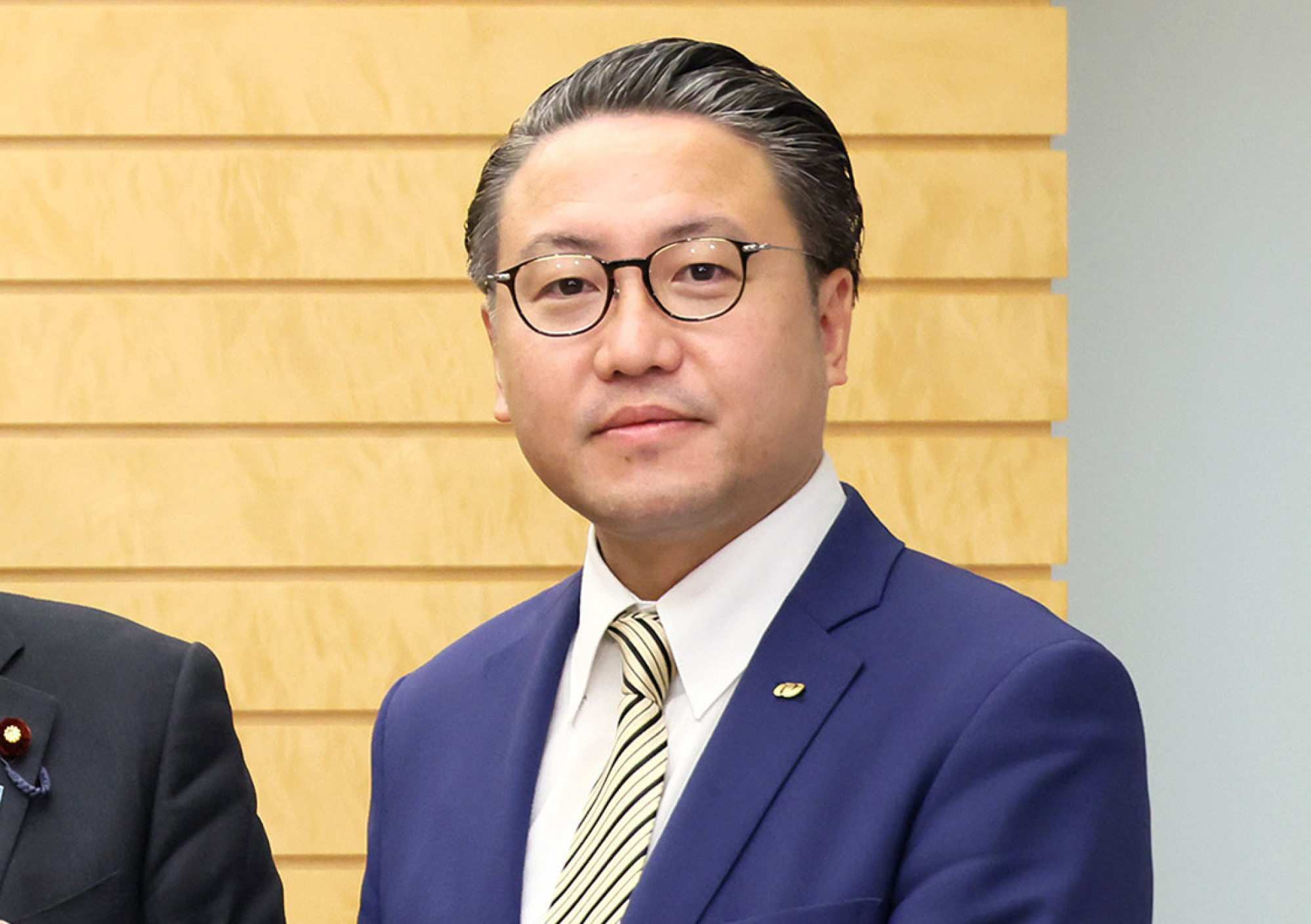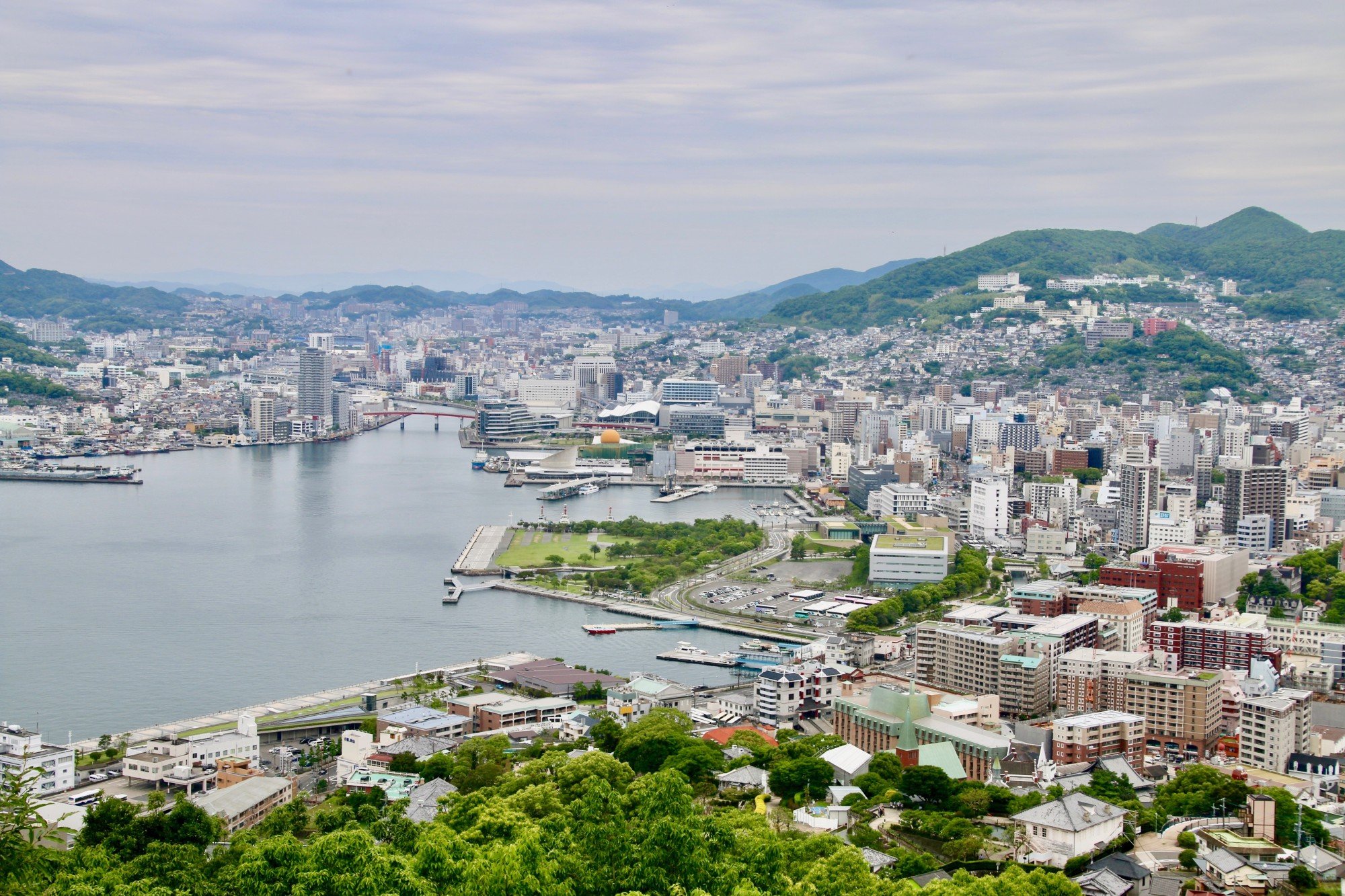
Own goal? Japan governor who skipped work to meet Cristiano Ronaldo faces calls to resign
- Nagasaki Governor Kengo Oishi went to watch a match between Al Nassr FC and PSG instead of attending a meeting of the nation’s governors
- He claimed he wanted to ask Ronaldo to help promote Nagasaki, a move some people deem an abuse of power while others say is no big deal amid larger scandals elsewhere
Governor Kengo Oishi has said he used his own money to buy the ticket to the July 25 match between Ronaldo’s Saudi Arabian side Al Nassr FC and France’s Paris Saint-Germain, although his travel and accommodation costs were covered by the prefectural government. The preseason friendly took place in Osaka.
Oishi has also claimed he used the meeting to invite Ronaldo to “extend a helping hand to the publicity of Nagasaki Prefecture”, the Asahi newspaper reported, although city officials said there had been no official response to the request.

The issue has divided opinions online, with some users demanding that Oishi resign for abusing his position and others insisting the governor was acting in his professional capacity to promote Nagasaki.
“As a governor holding public office, his first priority should be to concentrate on his duties. He prioritised his own interests and put Nagasaki Prefecture second. What he did was wrong. He should resign,” one user said on the website of the FNN Prime Online news service.
Another added: “A governor who doesn’t want to do his job should retire.”
Yet others are simply dismissing the incident as being of little importance, while some analysts admit it is another example of inappropriate behaviour by elected officials – but pales alongside some of the scandals that are currently rocking the Japanese political world.
Nagasaki was represented at the July 25-26 meeting of prefectural leaders in Yamanashi Prefecture by the deputy governor. The meeting discussed measures to reverse the nation’s declining birth rate, the contracting rural population and the impact of global warming.
Oishi was in Tokyo in the first day of the conference for discussions about budgetary allocations before he travelled to Osaka for the football match in the evening. The next day, he visited a number of local businesses before attending an event arranged by Ronaldo’s representatives, where the governor extended his request for the player to help promote a city with historical links to Portugal through the arrival of the first traders and missionaries in the mid-1500s.
Local media first reported on the governor’s activities late last month, with Oishi on December 7 telling the Japanese ambassador to Lisbon that Portugal’s paralympics team had been invited to Nagasaki next year for a preparatory camp ahead of the World Para Athletics Championships, which are to be held in Kobe in May.
Yuji Morikawa, a professor of international politics at Nagasaki University, said the incident was not likely to upset Nagasaki residents.
“I don’t think many people in Nagasaki are really paying attention to the news,” he said. “I would say that most people I know are not very interested, and as a resident of the prefecture and a taxpayer, I can’t say that it matters much to me either.”
Some online users shared that position, with one message linked to a story on the FNN news site saying: “I think that getting to know Ronaldo is more important than attending meaningless meetings.”
Another stated: “What did the governor lose by not attending the meeting of prefectural leaders? I don’t particularly like politicians, but I can only see this as a story designed to stir up distrust in politics.”

Oishi rose to prominence in February last year, when he ran for governor as an independent against the three-term incumbent backed by the ruling Liberal Democratic Party (LDP). A doctor aged just 39 at the time, Oishi became the youngest governor in Japan when he was elected.
In his acceptance speech, he said: “I will design the future of Nagasaki Prefecture to allow all generations to live their lives without any worries.”
Hiromi Murakami, a professor of political science at the Tokyo campus of Temple University, said Oishi’s actions “do not look all that good”, but she suggested it was a relatively minor matter as the national government gets sucked into yet another political scandal.
Chief Cabinet Secretary Hirokazu Matsuno has been accused of failing to report more than 10 million yen (US$69,400) raised from supporters. Speaking at a press conference in Tokyo on Friday morning, Matsuno said he had no intention of resigning over the matter.
The scandal will be damaging to the prime minister, whose public support rate has been sliding in recent months over a number of other problems involving his ministers.
“I do not think politicians in general are held in very high regard by the Japanese public at the moment,” Murakami said. “We see that at all levels of the political scene, but the problem is that the opposition is weak, and the public has little trust in other parties at a time when the regional security situation is precarious.
“Little will change until the public expresses its dissatisfaction at politicians’ actions and holds them accountable.”

